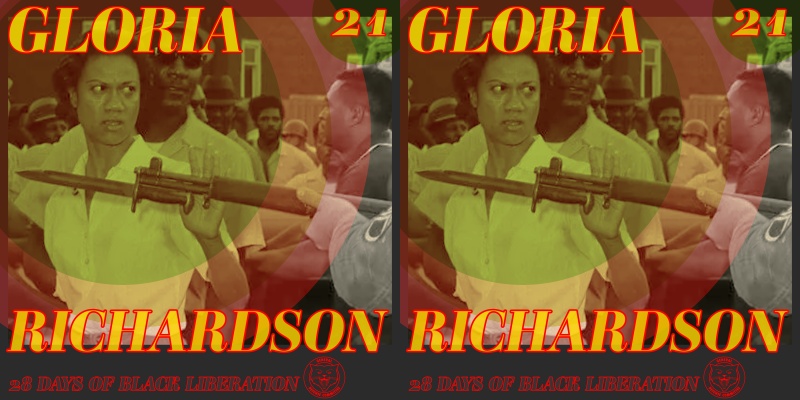Day 21 of the 28 Days of Black Liberation 2024 series
Gloria Richardson was a pivotal figure in the Civil Rights Movement and a dynamic advocate for the dismantlement of the white power structure.
She was born into a middle-class, politically active family in Baltimore, Maryland that later moved to Cambridge, Maryland and owned multiple properties including a grocery store and funeral home in the segregated community of Cambridge’s Second Ward. Her uncle, Herbert St. Clair spent many years as the sole African-American member of the City Council. She was aware that despite her family’s privilege, it didn’t protect them from the anti-Black racism in Cambridge such as segregation and a lack of economic opportunities.
As a Howard University student, she got involved with activism, protesting the Peoples Drug store for their refusal to hire Black employees, & challenged colorism in her sorority, Alpha Kappa Alpha. She returned to Cambridge with a Bachelor’s yet experienced employment discrimination. Post-divorce, she was inspired by her daughter Donna’s involvement in SNCC’s protests against segregation in Cambridge, becoming a prominent leader in the Cambridge Nonviolent Action Committee (CNAC).
Her leadership during CNAC’s protests, which often turned violent due to opposition forces, caught the attention of figures including Attorney General Robert F. Kennedy. She met with him & negotiated what became the “Treaty of Cambridge,” an agreement promising desegregation in exchange for an end to protests. Despite being a signatory, she never agreed to stop demonstrating. This treaty unraveled when it was forced into a referendum and Gloria refused CNAC’S participation, which was met with criticism; her response was: “A first-class citizen does not plead to the white power structure to give him something that the whites have no power to give or take away. Human rights are human rights, not white rights” and criticized the Treaty’s focus on segregation while ignoring demands for economic equality.
Gloria’s activism included advocacy for job opportunities, quality healthcare access, & fair housing. Her militant, unapologetic approach to organizing laid the blueprint for activists today.

